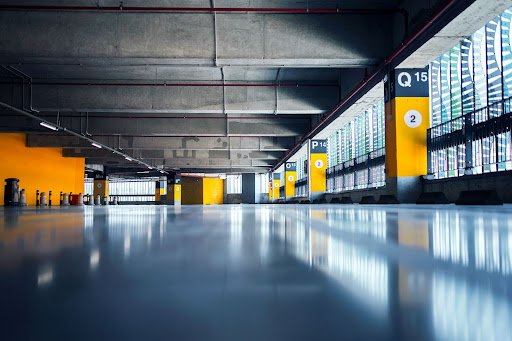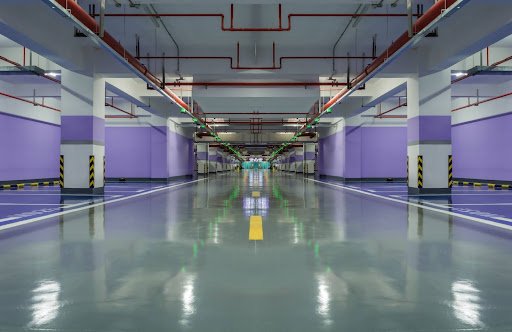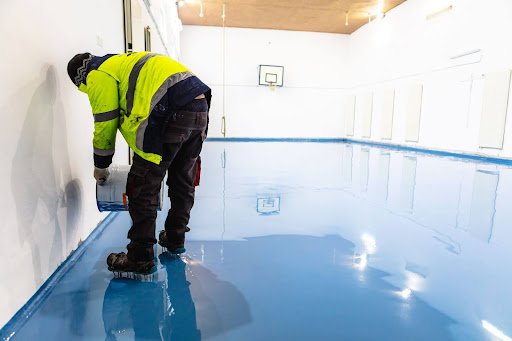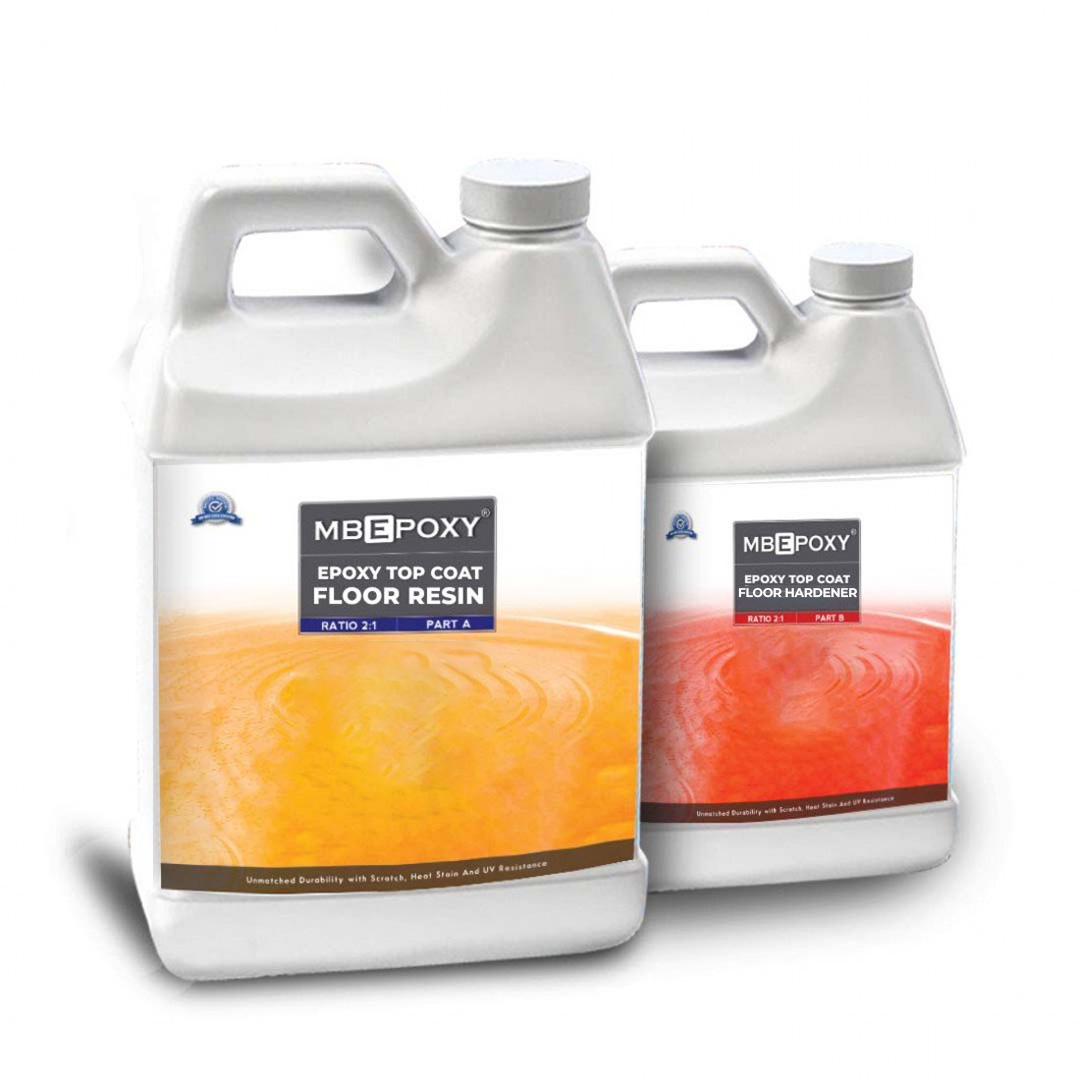Epoxy Flooring vs. Traditional Flooring: What is the Better Choice in 2025?

Flooring today is about more than just appearance. As we move further into 2025, the focus has shifted toward performance, sustainability and making choices that stand the test of time, especially in large-scale commercial or industrial environments. If you're reworking a warehouse, planning a factory upgrade or handling a heavy-footfall facility, your flooring decision matters more than ever.
That’s where the comparison between epoxy flooring and traditional options becomes more than just a surface-level conversation. Both types of flooring have an opportunity to shine in unique situations but when it gets down to what performs best under stress the difference is clear.
Understanding Epoxy Flooring’s Rise in Demand

So, what exactly is epoxy flooring and why is it being used just about everywhere? To put it simply, it’s a durable layer of resin that is applied over concrete. Once set, it cures to a smooth, hard surface capable of holding up to the daily wear as well as exposure to chemicals and moisture.
What’s making it so popular in sectors like manufacturing, logistics, healthcare and food production is its ability to perform consistently under stress. Contrast that with older solutions like tile, natural stone or plain concrete. Yes, they’ve been around for decades but they often struggle when subjected to the kind of wear modern facilities demand. Cracks, stains, water intrusion and regular maintenance are all common issues.
When Strength Matters, Epoxy Doesn’t Flinch
If you’re dealing with machinery, moving vehicles or harsh cleaning agents, durability isn’t optional, it’s critical! And here, epoxy flooring clearly delivers.
- It doesn’t chip or crack under impact.
- No weak grout lines to worry about eroding.
- Resistant to oils, chemicals and even acids that can ruin other floors.
When applied with a strong industrial epoxy floor coating, it can easily last 10 to 15 years - sometimes longer. Compare that to tiles that loosen or concrete that chips and dusts, and the choice becomes pretty obvious.
Modern Looks, Minimal Effort

There’s a misconception that epoxy flooring only comes in a dull industrial finish. That might’ve been true once but not anymore. It’s incredibly versatile now.
You can go for sleek, high-gloss surfaces, rich color tones or even textures that resemble stone or marble epoxy. Want a modern, high-end look in a commercial lobby or office space? Epoxy can do that. Need a non-slip surface for a factory floor? Epoxy can do that too.
Stone coating techniques and metallic flakes are also gaining popularity—especially in environments where both durability and aesthetics are essential. Traditional materials like marble or ceramic can look great at first, but in busy spaces, they wear out quickly and lose their charm.
Cleaning and Maintenance: One Less Thing to Worry About
One of the most practical benefits of epoxy flooring is how little maintenance it needs. That’s a huge deal in any large facility where cleaning costs and downtime add up fast.
- No joints or cracks for dirt to settle into.
- Smooth, non-porous surface that doesn’t stain easily.
- Mops clean quickly—even in hygienic zones like pharmaceutical or food processing units.
Traditional flooring products usually require special cleaning agents to keep them looking good, if it’s not sealing or re-grouting. That's a real hassle when you are dealing with a working space.
Looking at Cost from the Right Angle
Sure, the initial cost of epoxy flooring might be higher than vinyl or regular tile. But long-term? It’s a different story.
- No recurring repairs.
- No tile replacements.
- No special cleaning treatments.
- Minimal business disruption from rework.
Over time, the investment pays for itself, especially when installed in areas that are constantly in use. Meanwhile, older materials may seem affordable up front but often come with hidden costs down the road.
Installation Time and Business Downtime

Let's face it - every day that your business is under construction is another day of lost productivity. The good news here is epoxy flooring (if installed by competent professionals) won't take long at all to install.
Surface prep is key, followed by application and curing. But once it sets, it’s good to go - ready for heavy equipment, foot traffic or even chemical exposure. On the other hand, traditional floors might need longer timelines due to cutting, laying, finishing and if something goes wrong, it requires repairs shortly after.
When Traditional Flooring Still Works
All this said, there are places where traditional flooring still holds value. For example, if you’re restoring an old property with historic design elements, or fitting out a low-traffic space where looks are everything, materials like marble or tile can work well - as long as you’re ready for the upkeep.
But in modern, fast-paced environments such as factories, hospitals, commercial kitchens- the demands are simply too high for traditional floors to keep up.
The Bottom Line: Which One Wins in 2025?
While it will always depend on your space, in most of these high-use environments, epoxy flooring is clearly the superior option. It’s strong, easy to maintain, adaptable in design and built for the long haul. Traditional floors might still win on nostalgia or upfront price but they often fall behind where it counts most - performance, practicality and peace of mind.
Need Expert Help Choosing the Right Flooring?

If you're exploring epoxy flooring for your next commercial or industrial project, it’s essential to source materials from epoxy flooring manufacturers who understand the demands of large-scale applications and can guide you. Their expertise can help you select the most suitable resin and hardener combination for your space. This includes selecting a heavy duty industrial epoxy floor coating, which includes epoxy resin and hardener.
For reliable guidance and top-tier materials, MB Enterprises is a name many in the industry trust. With the right team and product in place, you’ll get flooring that not only lasts but makes your entire space better.
FAQs
1. Why is epoxy flooring considered better than traditional flooring?
Epoxy flooring offers superior durability, chemical resistance, and longevity compared to traditional options like tiles or concrete. It doesn’t crack or chip easily and performs better in heavy-use environments, making it a smarter long-term investment.
2. Is epoxy flooring more expensive than tiles or vinyl?
While epoxy might cost more at the start, it saves money over time. There are no recurring repair costs, no need for replacements, and minimal maintenance.
3. Does epoxy flooring require a lot of maintenance?
No. Epoxy floors are smooth, non-porous, and easy to clean. They don’t trap dirt or stains and don’t need regular sealing or special cleaning products like traditional floors. Basic mopping usually does the job.
4. How long does epoxy flooring last?
Epoxy flooring can last 10 to 15 years or longer when installed properly, even in demanding conditions.
5. How long does it take to install epoxy flooring?
Epoxy flooring is relatively quick to install when done by professionals. After surface preparation and curing.
-2462x2317.png)


29 Comment(s)
Hi... Welcome to Trisoul Technologies is a leading name in waterproofing, epoxy waterproofing, and waterproof coating solutions, delivering long-lasting protection for homes, offices, and industrial structures. Our expert team ensures precision application using advanced materials and techniques to safeguard your property from water damage. Choose Trisoul for reliable, high-quality waterproofing services that stand the test of time.Call us Today to fix it immediately.
Hi This posting is from Trisoul Technologies, Welcome to Trisoul Technologies, where flooring and waterproofing are elevated to an art form by Bangalore's top epoxy flooring contractors. F
For more information call us at +91-8105634002 or write back to us @ Trisoultechnologies2024@gmail.com.
Not only that, We also Cater our clients with Building/Construction Materials... for all your Construction Needs.
Hi, Welcome to Trisoul Technologies, A, Leading name in waterproofing, epoxy waterproofing, and waterproof coating solutions, delivering long-lasting protection for homes, offices, and industrial structures. Our expert team ensures precision application using advanced materials and techniques to safeguard your property from water damage. Choose Trisoul for reliable, high-quality waterproofing services that stand the test of time. Call us @8105634002 for Immediate Services.
Hi, Welcome to Trisoul Technologies, A, Leading name in waterproofing, epoxy waterproofing, and waterproof coating solutions, delivering long-lasting protection for homes, offices, and industrial structures. Our expert team ensures precision application using advanced materials and techniques to safeguard your property from water damage. Choose Trisoul for reliable, high-quality waterproofing services that stand the test of time. Call us @8105634002 for Immediate Services.
Hi, Welcome to Trisoul Technologies, A, Leading name in waterproofing, epoxy waterproofing, and waterproof coating solutions, delivering long-lasting protection for homes, offices, and industrial structures. Our expert team ensures precision application using advanced materials and techniques to safeguard your property from water damage. Choose Trisoul for reliable, high-quality waterproofing services that stand the test of time. Call us @8105634002 for Immediate Services.
your premier epoxy flooring supply and service provider in India.
At Trisoul, we redefine the way you experience spaces by offering cutting-edge epoxy flooring solutions that seamlessly blend aesthetics with functionality.
Trisoul is a dynamic and innovative epoxy flooring supply and service provider based in India.
Hi welcome To Trisoul Technologies Epoxy Flooring Services. Epoxy Flooring/ CoatingPU flooring / CoatingESD Flooring,anti Skid Flooring, car Parking Flooring,Raised Flooring
3D & Metallic Epoxy Flooring and Allied Works.Phone- +91 8105634002
https://www.trisoultechnologies.com/ Call us or visit ourwebsite for more information.
Ahaa, its ppleasant dijscussion concesrning this pieche oof wrikting heee att this wweb site, I have read all that, sso at his time mee alsso commeenting aat thiss place.
Hello, i think that i saw you visited my website so i came to “return the favor”.I'm trying to find things to enhance my website!I suppose its ok to use some of your ideas!!
Ahaa, its good discussion on the topic of this piece of writing at this place at this webpage, I have read all that, so now me also commenting here.
This is my first time pay a quick visit at here and i am actually happy to read everthing at alone place.
Way cool! Some very valid points! I appreciate you penning this write-up and also the rest of the site is very good.
This is really interesting, You're a very skilled blogger. I've joined your feed and look forward to seeking more of your fantastic post. Also, I've shared your web site in my social networks!
I will immediately grasp your rss as I can not to find your email subscription link or newsletter service. Do you’ve any? Kindly let me understand so that I may just subscribe. Thanks.
Valuable information. Fortunate me I discovered your site accidentally, and I am stunned why this accident did not came about earlier! I bookmarked it.
You've made some decent points there. I looked on the web for more information about the issue and found most individuals will go along with your views on this web site.
Hi, I do believe this is a great web site. I stumbledupon it ;) I'm going to revisit once again since I book marked it. Money and freedom is the greatest way to change, may you be rich and continue to help other people.
I am sure this post has touched all the internet visitors, its really really nice piece of writing on building up new webpage.
Greetings! Very helpful advice in this particular article! It's the little changes that make the biggest changes. Thanks a lot for sharing!
Ahaa, its fastidious discussion concerning this piece of writing at this place at this blog, I have read all that, so now me also commenting at this place.
I love what you guys tend to be up too. This sort of clever work and reporting! Keep up the great works guys I’ve incorporated you guys to our blogroll.
I love it when individuals get together and share thoughts. Great website, continue the good work!
Ahaa, its pleasant conversation on the topic of this post here at this website, I have read all that, so at this time me also commenting at this place.
I simply could not leave your site before suggesting that I extremely enjoyed the usual info a person provide in your guests? Is gonna be again frequently in order to check out new posts
It's going to be end of mine day, but before finish I am reading this great piece of writing to increase my know-how.
I’ll immediately snatch your rss as I can’t in finding your email subscription hyperlink or newsletter service. Do you have any? Please let me realize so that I may subscribe. Thanks.
At this time, your phone screen looks like the below mention pic.
I will immediately take hold of your rss as I can’t in finding your email subscription hyperlink or e-newsletter service. Do you’ve any? Kindly let me know in order that I may just subscribe. Thanks.
Hi, I do believe this is a great blog. I stumbledupon it ;) I may revisit once again since I book marked it. Money and freedom is the greatest way to change, may you be rich and continue to help other people.
Leave a Comment